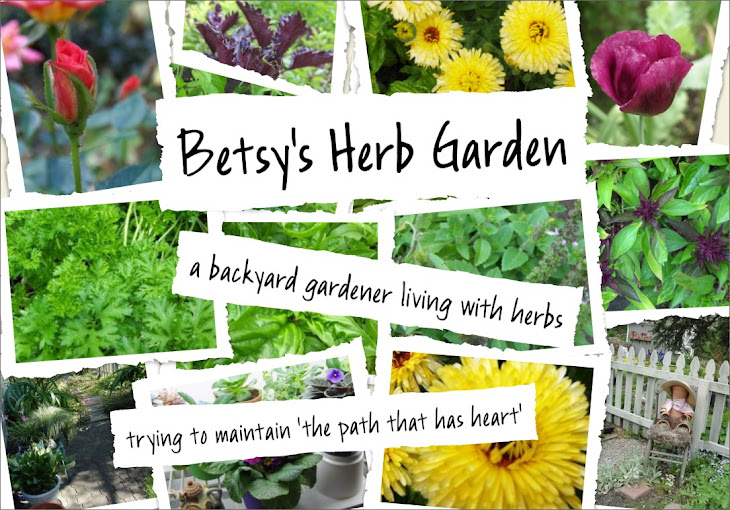Nationally known gardener Ken Druse and his garden buddy Vickie Johnson have been broadcasting an enjoyable weekly radio program for some time now, and here is the link to listen online:
Real Dirt Radio
For folks who "Ipod" (in other words listen to an .mp3 player) or who can listen online, the show (and the past the archived episodes - 25 or so) is available for free from Apple's ITunes store (Google it). Just type Real Dirt into the search box in the upper corner of the ITunes store and subscribe for free from the results page.
By Sheer Coincidence, on the very week when I sent this message to our Master Gardener volunteer coordinator to share on her list-serve, Ken and Vickie were discussing herbs and the Herb Society of America.
Vickie was telling about this year's collaboration between the HSA and Park Seed, that you will see when you get your Park Seed Catalogue. (Every gardener in America gets the Park Seed Cat, right?)
As I understand it, a committee within the HSA made a list of their Top Ten Easy and Annual Herbs, and Park will be selling a promotional package (link) in coordination with the 75th Anniversary of the HSA.
I must comment on both Park Seed and the HSA. The Park Seed catalogue is how I got into growing plants from seed so many years ago. It was my winter dream book. I grew unusual things from seed back in the days when our local nurseries only carried common plants and trips to Bordines Nursery were reserved for my birthday.
The Park Seed catalogue introduced me to the world of plants and led me to look for more seed sources, down the road to J.L. Hudson Seedsman, Richter's, and more.
Obviously, a seed packet can stretch the budget, but growing plants from seed gives a depth of knowledge that buying transplants does not. Following this thought back to herbs, if you are thinking of using your plants (herbs are useful plants by definition), you simply must know their Latin name. For instance, look at the sorrel in the Park package... it is NOT the same sorrel as you will find growing in the vacant lot. Learning to look for the right variety of a plant means learning their names. Common names are not adequate for a true herbie.
I've heard some (usually inexperienced) gardeners dismiss bionomial nomenclature as high hat, for instance, but if you are an avid garden catalogue reader, you learn botanical latin as if by osmosis. And once naming plants properly takes root, you only feel silly with pronunciation, which fortunately can become an ice-breaker in conversation if handled well.
I've read that no one really knows how Latin was pronounced in Classical Roman times (any more than a typical modern American would understand spoken Middle English) and binomial nomenclature only really gained popularity with Carolus Linneaus in the 1700s, so I personally give people the benefit of the doubt when they try talking about Clematis or Yucca and hope for the same grace in return.
Pronunciation is not the point, what the person is saying about the plant is what matters. But we need to be talking about the same plant, especially if we intend to use it herbally. But enough said about the common name-botanical Latin debate, I digress. Things have really changed since the 1970s, and we have all kinds of plant and seed selection we never had before, but the Park Seed catalogue is still great for a cozy winter afternoon read.
Whenever I go through my old seed stash that I store in a Tupperware box in the back of the fridge, I'll run across those little gold foil packets from Park Seed and recall the years ago gardens when I grew this or that, reliving good memories.
My seeds might be past viability but my memories were only dormant.
And Congratulations on your 75th anniversary and Thank you to the Herb Society of America. The HSA was founded back when herbs were certainly underappreciated and almost forgotten as garden plants. The Herb Society of America was a force behind changing all of that. They showed us what a small group of committed gardeners could do.

No comments:
Post a Comment